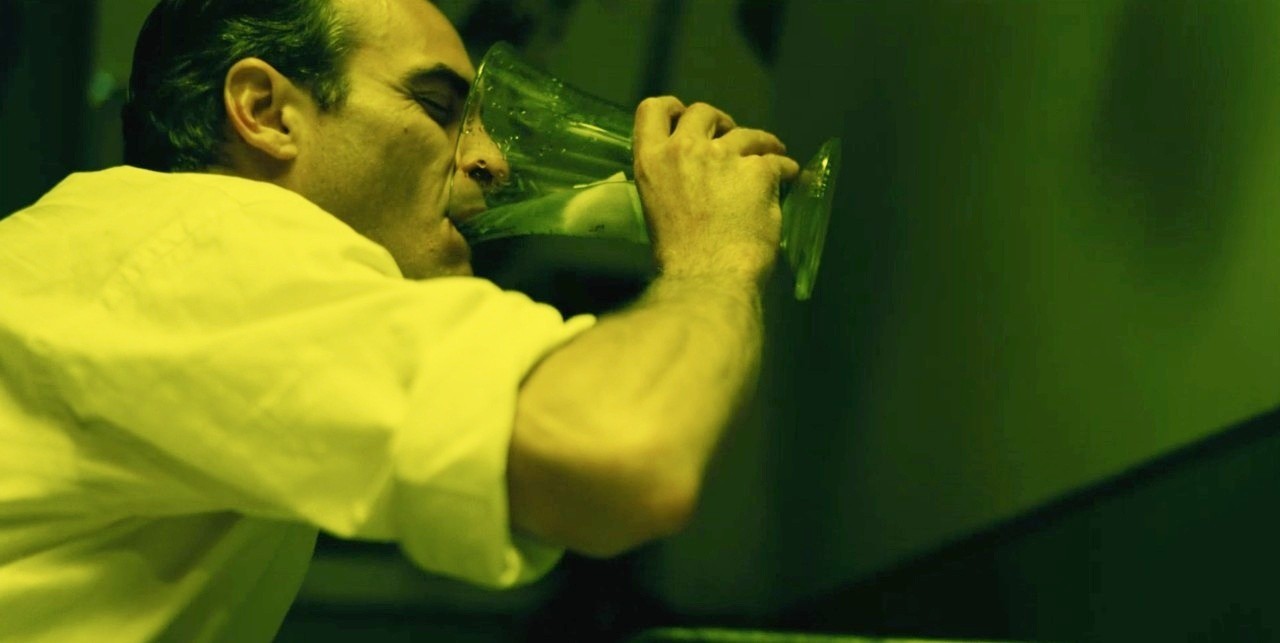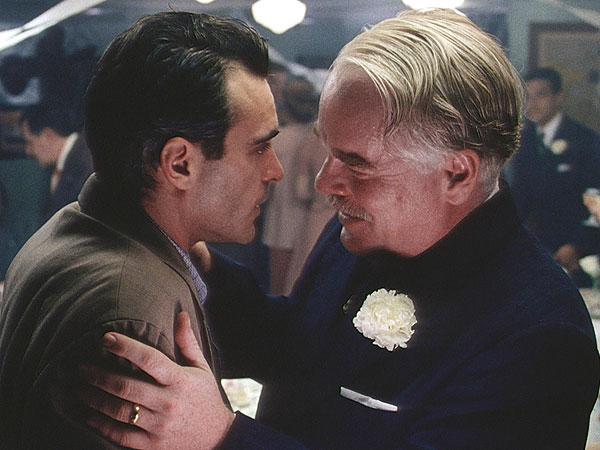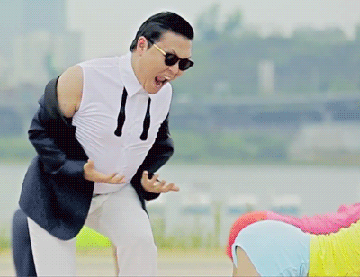Hello everyone, and welcome to our Fourth Edition of the Long Halloween! Each year, starting on Halloween we go through every holiday of the year, highlighting the best sorts of television and movies to watch. The first year we did this, we went straight up through television, commanding the best specials to watch for each Holiday, starting with The Simpsons Treehouse of Horror.
During our second installment, we just blew the wad and talked about EVERYTHING proper to do on a Holiday, starting with the best movies, video games, and food to munch on during All Hallow's Eve. This we spent doing for the next year. After that we scratched our heads coming up with something fresh and we decided on the Obscure Edition - highlighting Holidays off the beaten path and the best flicks to watch then, starting with National Hermit Day on October 29th.
So, here we are again. Another year of the Long Halloween (It's a Batman joke, folks), and we don't have much else to say. Then again, since we're all huge Simpsons fans, it's about time for an All-Simpsons Edition. Jump for joy! We'll start with another look at the Treehouse of Horror series. When we first did this three years ago, we ranked all twenty installments, but there have been a few more since then, so let's update our ranking:
#1: V - Season 6, 1994: "The Shinning," "Time and Punishment," "Nightmare Cafeteria"
#2: VII - Season 8, 1996: "The Thing and I," "The Genesis Tub," "Citizen Kang"
#3: XX - Season 21, 2009: "Dial 'M' for Murder or Press '#' to Return to Main Menu," "Don't Have a Cow, Mankind," "There's No Business Like Moe Business"
#4: VI - Season 7, 1995: "Attack of the 50-Foot Eyesores," "Nightmare on Evergreen Terrace," "Homer³"
#5: III - Season 4, 1992: "Clown Without Pity," "King Homer," "Dial 'Z' For Zombies"
#6: VIII - Season 9, 1997: "The HΩmega Man," "Fly vs. Fly," "Easy-Bake Coven"
#7: IV - Season 5, 1993: "The Devil and Homer Simpson," "Terror at 5½ Feet," "Bart Simpson's Dracula"
#8: XXIII - Season 24, 2012: "The Greatest Story Ever Holed," "UNnormal Activity," "Bart & Homer's Excellent Adventure"
#9: II - Season 3, 1991: "The Monkey's Paw," "The Bart Zone," "If I Only Had a Brain"
The First Nine here are all over the place, as you can see. The Simpsons really had their optimal run between Seasons 4 and 8, and all of those episodes are represented here, along with periphery episodes from Seasons 3 and 9. Season 21 and 24 both contain recent episodes that have also been exceptional. I'd consider a high grade here a sign that the entire episode was great, with all three segments being worthwhile.
#10: X - Season 11, 1999: "I Know What You Diddily-Iddily-Did," "Desperately Xeeking Xena," Life's a Glitch, Then You Die"
#11: XXII - Season 23, 2011: "The Diving Bell and Butterball," "Dial D for Diddly," "In the Na'Vi"
#12: XI - Season 12, 2000: "G-G-Ghost D-D-Dad," "Scary Tales Can Come True," "Night of the Dolphin"
#13: XIII - Season 14, 2002: "Send in the Clones," "The Fright to Creep and Scare Harms," "The Island of Dr. Hibbert
#14: I - Season 2, 1990: "Bad Dream House," "Hungry are the Damned," "The Raven"
#15: XV - Season 16, 2004: "The Ned Zone," "Four Beheadings and a Funeral," "In the Belly of the Boss"
#16: XVII - Season 18, 2005: "Married to the Blob," "You Gotta Know When to Golem," "The Day the Earth Looked Stupid"
#17: IX - Season 10, 1998: "Hell Toupée," "The Terror of Tiny Toon," "Starship Poopers"
#18: XII - Season 13, 2001: "Hex and the City," "House of Whacks," "Wiz Kids"
The Second Nine contain either three weaker but satisfactory segments, or an episode marked by one or two terrible segments but one pretty god one. We'll judge only the first episode as the former. To highlight some great segments from the latter, check out X's "Desperately Xeeking Xena," XXII's "The Diving Bell and Butterball," XI's "Night of the Dolphin," XIII's "The Island of Dr. Hibbert" (Especially for the Homer/Marge Beastiality),XV's "In the Belly of the Boss,"XVII's "You Gotta Know When to Golem," IX's "Hell Toupée," and XII's "Wiz Kids."
#19: XIV - Season 15, 2003: "Reaper Madness," "Frinkenstein," "Stop the World, I Want to Goof Off"
#20: XVIII - Season 19, 2007: "E.T., Go Home," "Mr. & Mrs. Simpson," "Heck House"
#21: XVI - Season 17, 2005: "B.I.: Bartificial Intelligence," "Survival of the Fattest," "I've Grown a Costume on Your Face"
#22: XXI - Season 22, 2010: "War and Pieces," "Master and Cadaver," "Tweenlight"
#23: XIX - Season 20, 2008: "Untitled Robot Parody," "How to Get Ahead in Dead-vertising," "It's the Grand Pumpkin, Milhouse"
The Final Lot are just all awful. They are mostly more recent episodes, although sandwiched in between some of these are times when they just launched it out of the park.
So why are The Simpsons Treehouse of Horror episodes the greatest Halloween special ever? They're always this special event within a season. They eschew reality and canon in favour of really outrageous stories and parodies. They're also the best when they're a little scary, as the horrifying "Treehouse of Horror V" attests to. There is also such a rich history, I mean, 23 consecutive years of specials, that's material enough to rival some horror franchises, and provides plenty to do on All Hallow's Eve.
Happy Halloween!
During our second installment, we just blew the wad and talked about EVERYTHING proper to do on a Holiday, starting with the best movies, video games, and food to munch on during All Hallow's Eve. This we spent doing for the next year. After that we scratched our heads coming up with something fresh and we decided on the Obscure Edition - highlighting Holidays off the beaten path and the best flicks to watch then, starting with National Hermit Day on October 29th.
So, here we are again. Another year of the Long Halloween (It's a Batman joke, folks), and we don't have much else to say. Then again, since we're all huge Simpsons fans, it's about time for an All-Simpsons Edition. Jump for joy! We'll start with another look at the Treehouse of Horror series. When we first did this three years ago, we ranked all twenty installments, but there have been a few more since then, so let's update our ranking:
#1: V - Season 6, 1994: "The Shinning," "Time and Punishment," "Nightmare Cafeteria"
#2: VII - Season 8, 1996: "The Thing and I," "The Genesis Tub," "Citizen Kang"
#3: XX - Season 21, 2009: "Dial 'M' for Murder or Press '#' to Return to Main Menu," "Don't Have a Cow, Mankind," "There's No Business Like Moe Business"
#4: VI - Season 7, 1995: "Attack of the 50-Foot Eyesores," "Nightmare on Evergreen Terrace," "Homer³"
#5: III - Season 4, 1992: "Clown Without Pity," "King Homer," "Dial 'Z' For Zombies"
#6: VIII - Season 9, 1997: "The HΩmega Man," "Fly vs. Fly," "Easy-Bake Coven"
#7: IV - Season 5, 1993: "The Devil and Homer Simpson," "Terror at 5½ Feet," "Bart Simpson's Dracula"
#8: XXIII - Season 24, 2012: "The Greatest Story Ever Holed," "UNnormal Activity," "Bart & Homer's Excellent Adventure"
#9: II - Season 3, 1991: "The Monkey's Paw," "The Bart Zone," "If I Only Had a Brain"
 |
| "I'm so bulgy..." |
#10: X - Season 11, 1999: "I Know What You Diddily-Iddily-Did," "Desperately Xeeking Xena," Life's a Glitch, Then You Die"
#11: XXII - Season 23, 2011: "The Diving Bell and Butterball," "Dial D for Diddly," "In the Na'Vi"
#12: XI - Season 12, 2000: "G-G-Ghost D-D-Dad," "Scary Tales Can Come True," "Night of the Dolphin"
#13: XIII - Season 14, 2002: "Send in the Clones," "The Fright to Creep and Scare Harms," "The Island of Dr. Hibbert
#14: I - Season 2, 1990: "Bad Dream House," "Hungry are the Damned," "The Raven"
#15: XV - Season 16, 2004: "The Ned Zone," "Four Beheadings and a Funeral," "In the Belly of the Boss"
#16: XVII - Season 18, 2005: "Married to the Blob," "You Gotta Know When to Golem," "The Day the Earth Looked Stupid"
#17: IX - Season 10, 1998: "Hell Toupée," "The Terror of Tiny Toon," "Starship Poopers"
#18: XII - Season 13, 2001: "Hex and the City," "House of Whacks," "Wiz Kids"
 |
| "Wait a minute, Xena can't fly." "I told you, I'm not Xena, I'm Lucy Lawless." |
#19: XIV - Season 15, 2003: "Reaper Madness," "Frinkenstein," "Stop the World, I Want to Goof Off"
#20: XVIII - Season 19, 2007: "E.T., Go Home," "Mr. & Mrs. Simpson," "Heck House"
#21: XVI - Season 17, 2005: "B.I.: Bartificial Intelligence," "Survival of the Fattest," "I've Grown a Costume on Your Face"
#22: XXI - Season 22, 2010: "War and Pieces," "Master and Cadaver," "Tweenlight"
#23: XIX - Season 20, 2008: "Untitled Robot Parody," "How to Get Ahead in Dead-vertising," "It's the Grand Pumpkin, Milhouse"
 |
| I'm not entirely sure what to caption for this one. |
So why are The Simpsons Treehouse of Horror episodes the greatest Halloween special ever? They're always this special event within a season. They eschew reality and canon in favour of really outrageous stories and parodies. They're also the best when they're a little scary, as the horrifying "Treehouse of Horror V" attests to. There is also such a rich history, I mean, 23 consecutive years of specials, that's material enough to rival some horror franchises, and provides plenty to do on All Hallow's Eve.
Happy Halloween!














